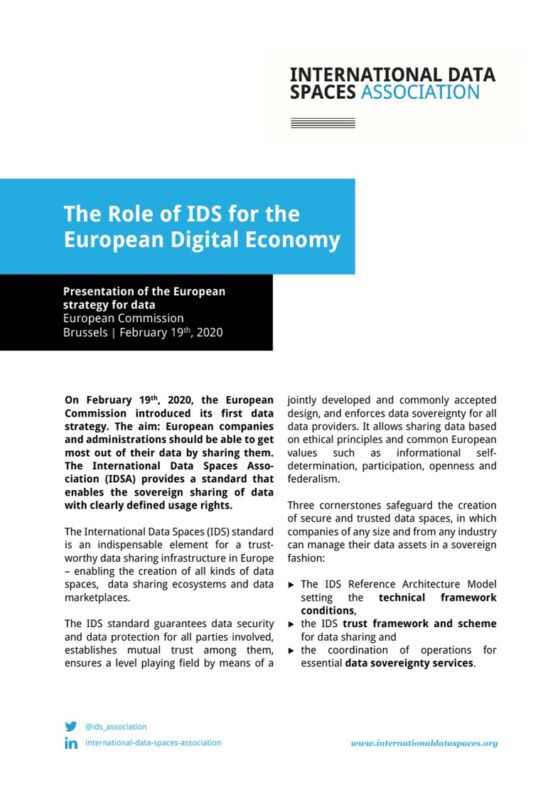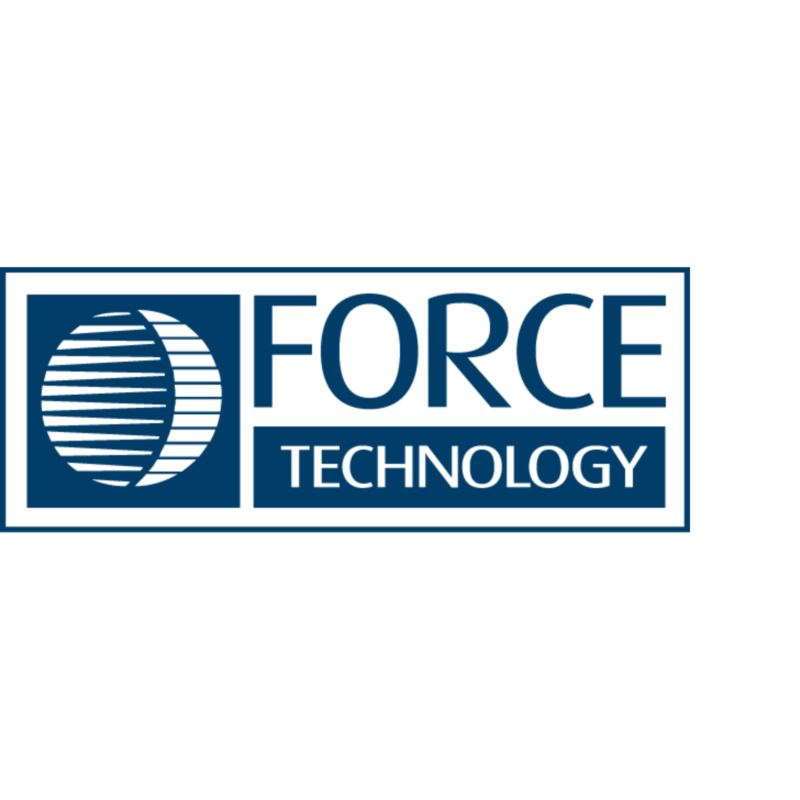Presentation of the European strategy for data
European Commission
Brussels | February 19, 2020

On February 19th, 2020, the European Commission introduced its first data strategy. The aim: European companies and administrations should be able to get most out of their data by sharing them. The International Data Spaces Association (IDSA) provides a standard that enables the sovereign sharing of data with clearly defined usage rights.
The International Data Spaces (IDS) standard is an indispensable element for a trustworthy data sharing infrastructure in Europe – enabling the creation of all kinds of data spaces, data sharing ecosystems and data marketplaces.
The IDS standard guarantees data security and data protection for all parties involved, establishes mutual trust among them, ensures a level playing field by means of a jointly developed and commonly accepted design, and enforces data sovereignty for all data providers. It allows sharing data based on ethical principles and common European values such as informational self determination, participation, openness and federalism.
Three cornerstones safeguard the creation of secure and trusted data spaces, in which companies of any size and from any industry can manage their data assets in a sovereign fashion:
- The IDS Reference Architecture Model setting the technical framework conditions,
- the IDS trust framework and scheme for data sharing and
- the coordination of operations for essential data sovereignty services.
With this in place, data linking or analysis can technically and at the semantic level be prevented or made possible. In this way, the classic structure of cloud services can also be embedded in an interoperable digital economy with full data sovereignty on the digital infrastructures of third parties.
The IDS standard solves a market obstacle: For data to unfold its value creation potential, it must be described and made tradable according to a global and interoperable standard. This has never existed before. But DIN SPEC 27070, based on the IDS Reference Architecture Model, is the first global and interoperable standard – soon to be also an ISO standard.
Digital platforms, applications in the fields of AI, IoT, or big data projects such as GAIA-X or AI4EU – all these endeavors and application areas cannot be conceived of without IDS concepts. IDS will significantly contribute to the success of these endeavors and application areas. Being an open standard for facilitating secure and trusted data exchange to connect those platforms in an accepted and standardized manner that is guided by the principles of data sovereignty, IDS should be integrated as an inherent component in current and future architecture models of the data economy.
With 110 members in 20 countries, IDSA continues to drive its global activities. In Europe, the association is strongly represented with its 8 European hubs. IDSA has already started the joint development of GAIA-X with its French, Dutch and Finnish partners and intends to extend this effort to all IDSA hubs worldwide. Therefore, IDSA welcomes a strong interaction with the EU Commission on its new data strategy.
“International Data Spaces as an upcoming global data exchange standard has the potential to form the basis for platforms based on European values and bring data sovereignty to artificial intelligence applications and to GAIA-X.”
Dr. Reinhold Achatz, CTO thyssenkrupp and chairman of the board of the IDSA:
The German Ministry for economics and energy has also published a press release on Digital Technologies and a position paper on the common Franco-German activities towards the European cloud infrastructure GAIA-X, in which IDSA is strongly involved:
For the press release (in German).
For the position paper “Franco-German Position on GAIA-X”.










